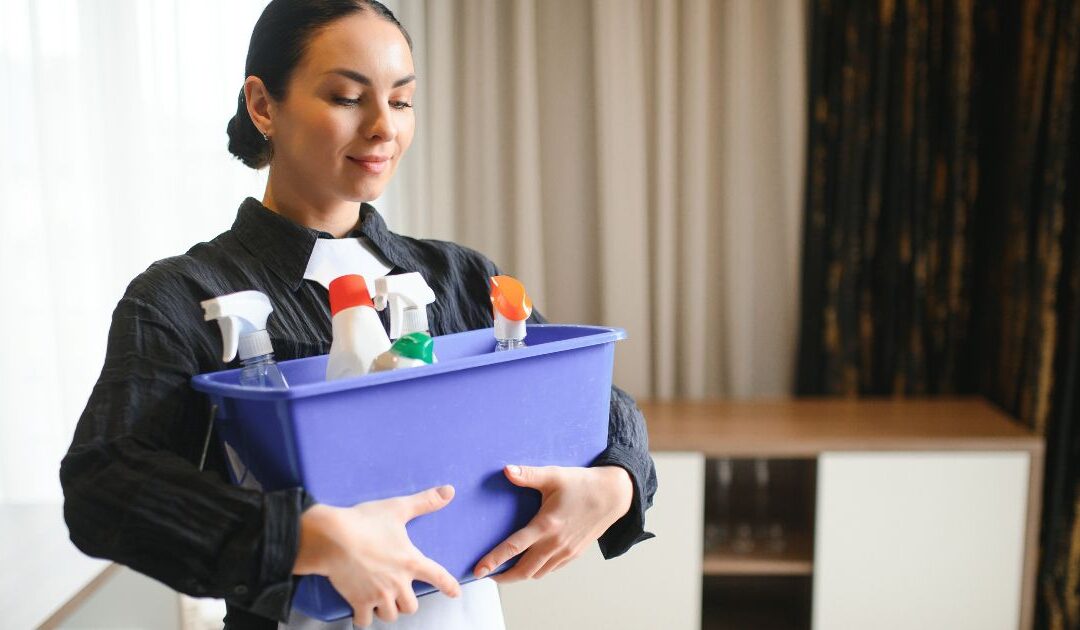What Is the Martinizing Cleaners Opportunity?
Martinizing Cleaners is a dry-cleaning and laundry franchise brand established in 1949. It was founded by chemist Henry Martin, who pioneered quick on-site dry-cleaning services. Today the Martinizing Cleaners services franchise is part of Clean Brands, LLC (Naples, FL), which reports over 350 Martinizing locations in the U.S. and roughly 400+ total stores across all its garment-care brands worldwide. In other words, Martinizing is one of the largest and most enduring names in the dry-cleaning industry. Below is a quick overview of the company’s background and industry context:
- Franchise Type: Martinizing is a dry-cleaning and laundry services franchise. Franchisees run garment-care outlets under the Martinizing brand.
- Founding Year: Established in 1949 by Henry Martin. It was the pioneer of the one-hour, on-premise dry-cleaning model.
- Expansion & Scale: Today Martinizing operates hundreds of franchised stores. Company materials state “more than 350 stores” in the U.S. and abroad, and the parent company notes a global footprint of over 400 locations across 40 states and 9 countries.
- Ownership & Milestones: Martinizing International, LLC is owned by Clean Franchise Brands, LLC. Clean Brands acquired Martinizing in 2021 and united it with other dry-cleaning concepts (e.g. Lapels, 1-800-DryClean), creating “the largest dry cleaning franchise globally”.
- Industry: The franchise operates in the garment-care sector (dry cleaning/laundry), not commercial building cleaning. As an established industry player, Martinizing has a mature customer base and support network behind it.
What Franchisees Get
Martinizing franchisees gain access to a full dry-cleaning system, with multiple business models and services. Key points include:
- Service Offering: Franchisees provide full garment cleaning services. Martinizing’s materials list dry cleaning, shirt laundry, wash-and-fold laundry, and related services as core offerings. Many shops also do alterations, leather/suede cleaning, wedding gown cleaning and preservation, comforter/blanket cleaning, etc.. Some locations even offer shoe repair, fur storage and other add-ons according to franchisedirect.com. The goal is to be a one-stop shop for fabrics and clothing.
- Convenience Features: The system emphasizes customer perks: for example, customers often receive a free “VIP bag” for clothes drop-off and next-day service. Many outlets handle pickup-and-delivery and allow 24/7 drop-off to fit busy consumers’ schedules.
- Business Models: Martinizing offers three franchise formats to choose from:
- Plant Store: A full-service retail shop where all cleaning is done onsite. This is the traditional, highest-investment model.
- Satellite Store: A storefront for drop-off/pick-up only – cleaning is sent out to an affiliated plant. This lowers equipment needs but requires partnering with a plant.
- Delivery Route (Martinizing Delivers): No physical store; the business runs from a van, with all cleaning processed off-site. This has the lowest startup cost but depends on logistics.
- Training & Support: The franchisor provides substantial training and help. New owners undergo a pre-opening training program (several days of classroom and on-site training). According to industry sources, the “Launch Right” program covers setup tasks, then franchisees spend about 1–2 weeks in corporate training facilities (classroom + hands-on) and 1 week in a live store. Ongoing support includes webinars, field visits, an annual convention and access to marketing/co-op resources. In short, franchisees don’t start from scratch – Martinizing provides a detailed operations manual and assistance through launch and beyond.
- Customers (B2C vs B2B): Most Martinizing locations serve local consumers and households (individuals bringing their work clothes and household items). However, Martinizing also pursues some business contracts. For example, the company advertises “corporate garment cleaning partnerships” to handle employee uniforms and similar bulk work. In practice, the bulk of revenue typically comes from retail customers, with any B2B accounts as a supplement.
Startup Costs and Ongoing Fees
Owning a Martinizing franchise can be capital-intensive, especially for a full-plant store. The key financial requirements are:
- Initial Investment: Varies by model. A full-service plant store requires roughly $400K–$744K for equipment, build-out, opening supplies, and three months’ working capital. A satellite pickup store runs about $94K–$216K total, and a delivery route about $37.5K–$73K. In summary, one source gives a range of roughly $40,900–$777,300 total investment, depending on location and model.
- Franchise Fee: Typically $27,000 to $62,500, again depending on the chosen format. (Entrepreneur’s franchise guide indicates about $27K for small delivery-only deals up to about $60K for a full plant). This fee is due at signing.
- Royalties & Advertising: Martinizing charges an ongoing 6% royalty on gross sales. There is also a marketing fund contribution (often around 2–4% of sales). In some disclosures the combined advertising fee is listed as about 2% brand ad fee + ~1% local marketing, though some sources suggest 4% total marketing contributions. Additionally, some franchisors charge a small tech fee (e.g. up to $1K/month) and require periodic conference fees.
- Other Startup Costs: Equipment alone is a major line item. For a plant store, FranchiseDirect lists $257,648–$293,100 for cleaning machinery, plus freight/installation. There are also costs for green-solvent licensing ($2.5K), signage, opening advertising, insurance, and the usual real estate/setup expenses. Overall, be prepared for six-figures before opening.
- Franchisee Performance: For perspective, Martinizing’s Item 19 (financial performance) data shows an average unit volume (AUV) of about $387,000/year for a franchise location. This is the typical gross sales per store. (For comparison, many large commercial cleaning franchises cite higher average sales volumes.)
In summary, Martinizing franchising demands significant capital (up to about $750K) and includes a moderate ongoing royalty. The trade-off is a known brand and turnkey garment-care business.
How the Industry Itself Compares
Beyond franchise details, the underlying industries differ markedly. Dry-cleaning (Martinizing’s industry) is a retail garment-care market, while commercial cleaning (Assett’s industry) is a large B2B services market. Each has its own strengths and challenges.
Martinizing Cleaners Industry Advantages
- Established Brand & Heritage: Martinizing is a well-known name in dry cleaning with over 70 years of history. Its long tenure and pioneering role (first to popularize one-hour service) give franchisees instant credibility. Customers often recognize the Martinizing name and trust its process.
- Diverse Services: A Martinizing location can offer multiple garment-care services in one place – not just dry cleaning but also laundry, wash/fold, tailoring, leather cleaning, etc.. This diversity can boost revenue per customer. The franchise promotes convenience (24/7 drop-off, loyalty programs) to encourage repeat business.
- Environmental Edge: Martinizing markets a non-toxic cleaning solvent (GreenEarth) as a differentiator. Eco-conscious consumers may prefer this alternative to traditional perchloroethylene. This “green” angle can attract customers who value safety and sustainability.
- Mature Market Demand: Clothing will always need cleaning, and special garments (suits, dresses, uniforms, bedding) often require professional care. Martinizing partners with corporate clients on uniforms (for example, “corporate garment cleaning partnerships”), ensuring some recurring demand. The laundry/dry-cleaning market is resilient in that it addresses basic needs.
These points make Martinizing attractive for entrepreneurs focused on garment care and retail clients. However, the dry-cleaning business also has constraints (high equipment costs, dependence on consumer traffic, and competitive local markets) that affect profitability.
Compared to Commercial Cleaning Industry
Commercial cleaning (janitorial/office cleaning) offers a different value proposition:
Huge Market Size: The U.S. commercial cleaning industry is enormous (around $100+ billion annually). In contrast, the dry-cleaning market is much smaller. This means virtually unlimited potential customers (offices, schools, hospitals, warehouses, etc.).
Essential & Recession-Resistant: Offices and facilities must be cleaned regardless of the economy. As one franchise industry source notes, “there will always be a need for commercial cleaning services”. Businesses stay open through downturns, so janitorial contracts tend to be steady. (Indeed, cleaning franchises are often cited as among the most recession-resistant businesses.)
Recurring B2B Contracts: Commercial cleaning relies on multi-year contracts, yielding predictable monthly revenue. Franchise marketing highlights a “recurring revenue model based on annual contracts”, which means cash flow is steady rather than lumpy. By contrast, a retail dry-cleaner’s income depends on daily consumer traffic, which can fluctuate.
Lower Upfront Costs: Starting a cleaning franchise often requires minimal equipment (a van and basic supplies) and can even be home-based in some models. As a result, startup costs are low. (For example, many cleaning franchises have initial investments under $50K.) Martinizing’s model, by comparison, may need hundreds of thousands in specialized machinery.
Scalable with Low Overhead: An owner can quickly add new clients and cleaning crews without buying costly inventory. This makes it easier to grow toward seven-figure revenue. In fact, Assett’s own marketing touts “over $1,000,000/year potential” for franchisees. By contrast, the average Martinizing store is around $387K in sales, and scaling above that typically means opening another location (each requiring heavy investment).
First-Time Owner Friendly: Commercial cleaning does not require technical or specialized knowledge. Entrepreneur describes cleaning franchises as having “low startup costs” and accessible models that are ideal for newcomers. Dry cleaning, on the other hand, involves chemical handling, maintenance of machinery, and compliance with environmental regulations, which can steepen the learning curve.
Semi-Absentee Operation: Many janitorial franchises are explicitly designed to be run semi-absentee. An owner can hire and manage crews while spending only a few hours a week overseeing the business. (Indeed, Assett lists “Semi-Absentee” as a selling point.) By comparison, Martinizing franchisors advise owners to be heavily involved in daily operations or even suggest they live near the store
In summary, while the garment-cleaning industry has its merits (branded services, retail customer base), the commercial cleaning sector generally offers broader scale, stability, and simplicity for franchise owners. The cleaning business franchise model is built around ongoing contracts and manageable growth, whereas a retail laundry franchise depends more on individual customers and higher fixed costs.
How the Assett Franchise Compares
Now let’s see how Assett Franchise (a commercial cleaning franchisor) stacks up against the Martinizing opportunity and its industry:
Simpler Systems, Bigger Potential
- Commercial Cleaning Focus: Assett operates in the commercial janitorial niche, not retail garment care. This means franchisees sell and manage cleaning contracts for offices, schools, medical facilities, etc., rather than running a local store. The result is that owners manage the business (acquiring accounts, overseeing staff) instead of doing the actual cleaning. In Assett’s words, the franchise is designed for people who “want to be their own boss and achieve financial freedom”. This turnkey structure allows an Assett owner to scale up service accounts and let a team handle the work, making multi-hundred-thousand or million-dollar revenues attainable. In fact, Assett’s founder grew his first office-cleaning business to over $557,000 in recurring revenue within 12 month according to bizbuysell.com, demonstrating how quickly the model can scale.
- Proven Model: Because Assett was built from the ground up as a franchise model, it offers complete systems for owners with no cleaning experience. Franchisees receive a full playbook (sales scripts, bidding tools, quality checklists, accounting software) so they can hit the ground running. The CEO’s success story (hitting six figures in year one) shows the business works without needing prior janitorial know-how. Martinizing, by contrast, requires owners to master a specialized laundry operation from day one.
- Low Barrier to Entry: An Assett franchise requires a relatively low investment (the BizBuySell listing shows a $50K cash requirement and $50K franchise fee). There is no expensive plant to build. Owners often start part-time and ramp up. In contrast, a full Martinizing plant demands roughly 10 times that initial capital. This makes Assett more accessible for first-time entrepreneurs.
- Lifetime Scalability: Assett emphasizes that franchisees can grow the business without opening physical branches. One owner can cover a large territory with multiple crews. The goal is to reach a territory that can support $1M+ in sales. Assett explicitly markets $$1,000,000/year potential for franchise territories – a scale that usually requires multiple cleaning contracts, not just one. By comparison, a single Martinizing store has a natural revenue cap set by the local customer base.
Automated Hiring = Time and Money Saved
- Proprietary Hiring System: A major differentiator for Assett is its focus on solving staffing headaches. The company has developed a unique automated hiring platform. This system continuously runs job ads, screens applicants, and pipelines candidates in the background. In practice, it means franchisees “don’t have to spend hours every week searching for employees — the system does the heavy lifting for you”.
- Massive Time Savings: Hiring and turnover are notoriously time-consuming in service businesses. Assett notes that a traditional hiring process can eat up 20–30 hours per week for an owner. By automating this, franchisees reclaim that time. According to Assett, owners typically use those hours instead to win new contracts, train staff, and grow the company. They estimate saving about a full part-time person’s worth of work each week on recruiting tasks alone.
- Stable, High-Quality Teams: Because candidates are pre-screened and continually funneled into the system, Assett reports a more reliable workforce. This consistency means crews can be properly trained and schedules stick, which boosts service quality and client satisfaction. As Assett explains, when you can promise clients “we have a system that ensures we’re always fully staffed,” it builds trust and referrals. In short, owners avoid the constant emergency of last-minute hiring.
- Reduced Overhead: By solving the #1 problem of staffing, Assett franchisees rarely need to hire a full-time HR manager or constantly onboard new people. This keeps overhead and disruption low, which many new owners find invaluable. In comparison, a Martinizing franchise would face similar staffing issues (hiring for shifts, training laundry staff) but without any special system provided by the franchisor.
Personalized and Founder-Led
- Family-Owned Ethos: Assett is explicitly family-owned and founder-led, not owned by a distant corporate parent. The BizBuySell profile highlights this: “Assett is a Family Owned & Operated commercial cleaning franchise brand”. Franchisees work directly with the people who built the brand. There are no layers of corporate management dictating strategy. This personal structure means quicker decisions and more attentive support for franchisees.
- Founder Accessibility: Matt Pencarinha, Assett’s founder and CEO, remains actively involved in the company. BizBuySell notes the brand “is still personally owned & operated by Matt”. Prospective owners can even meet Matt and the team during the discovery process (Assett invites candidates to tour its original Asheville location and talk to leadership). For many franchisees, this direct access to leadership is reassuring – they know the founder’s vision is aligned with helping them succeed, rather than being controlled by far-away investors.
- Mission & Culture: Assett emphasizes a people-first, mission-driven culture. (For example, the company speaks of putting “People First” and running everything as a partnership.) This community focus often appeals to owners who want their business to have meaning and positive impact. In contrast, Martinizing’s corporate approach is more conventional – the franchise support is professional, but there’s less emphasis on shared values or personal mentorship. Assett’s model fosters a franchise “family” where owners are truly partners in the business mission.
Final Thoughts
Martinizing Cleaners is a solid franchise in its niche: it offers an established brand and diverse garment-care services that fit someone interested in retail customer service. For the right entrepreneur – one who loves working in a store environment with hands-on involvement – Martinizing can be a good opportunity. It has a proven history, recurring customer needs, and full training from the franchisor.
However, for entrepreneurs seeking scalability and stability, Assett Franchise may hold more advantages. The commercial cleaning industry is larger and more recession-resistant than retail laundry, and Assett’s model delivers predictable B2B contract income instead of relying on walk-in sales. Assett keeps startup and operating costs low (no heavy equipment required) and is designed for owners who want to work on the business, not be tied to day-to-day scrubbing. Its automated staffing system, complete support, and founder-led culture all aim to minimize headache and maximize growth.
For example, if you’re comparing different opportunities (or any cleaning business franchise), consider these points: Assett’s commercial cleaning contracts provide recurring revenue and flexibility, while Martinizing’s retail dry-cleaning needs costly machinery and depends on local consumer trends. Assett even markets a true semi-absentee potential and $1M+ territory earnings, illustrating how far the model can grow.
If you’re exploring franchise opportunities and want a model that can deliver long-term income, flexibility, and control — we’d love to show you how Assett Franchise can help you build a business that works for your life. Visit https://assettfranchise.com to connect with our team and learn more.




